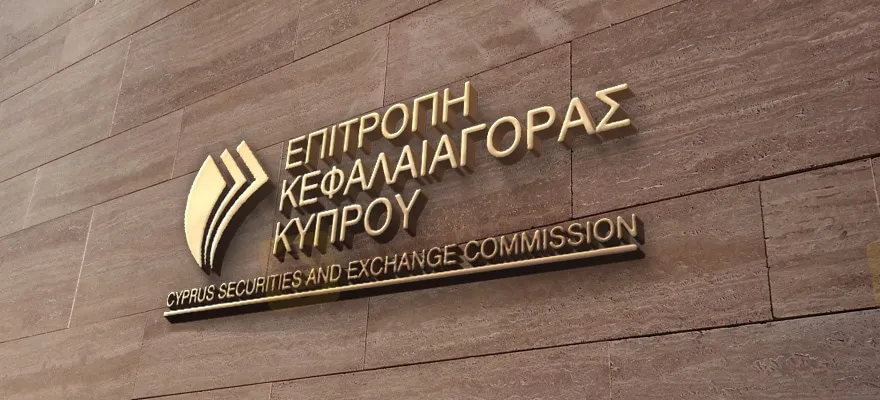简体中文
繁體中文
English
Pусский
日本語
ภาษาไทย
Tiếng Việt
Bahasa Indonesia
Español
हिन्दी
Filippiiniläinen
Français
Deutsch
Português
Türkçe
한국어
العربية
The CySEC Cracks Down On More Trading Brands
Abstract:The Cyprus Securities and Exchange Commission (CySEC) has withdrawn its Investors Compensation Fund (ICF) membership for three entities: London Capital Group (Cyprus) Ltd, Daweda Exchange Ltd and Felicitas Management Investment Services Ltd.
The Cyprus Securities and Exchange Commission (CySEC) has withdrawn its Investors Compensation Fund (ICF) membership for three entities: London Capital Group (Cyprus) Ltd, Daweda Exchange Ltd and Felicitas Management Investment Services Ltd. Fortunately, existing clients will still be entitled to compensation.

Non-Compliance
Each of these firms has had its Cyprus Investment Firm (CIF) license removed in recent years. The removal of the ICF membership is a result of these companies losing their CIF status.
Daweda had its CIF license revoked in 2020 following accusations that it onboarded customers from the European Union under an offshore entity based in the British Virgin Islands. The firm failed to adequately notify the CySEC.
The London Capital Group is currently going through a liquidation process in the UK. The EU regulator levelled several accusations at the company, including violations of compulsory compliance requirements. This led to the EU regulator withdrawing the firms CIF license.
The CySEC commented: “The loss of ICF membership status does not mean the loss of rights of covered clients to receive compensation in relation to investment operations carried out until the loss of membership status if the conditions for compensation are fulfilled pursuant to the Directive, nor does it obstruct the initiation of the compensation procedure for covered clients”.
It has been a busy few months for the EUs top financial regulator, with the CySEC revoking the licenses of several other trading brands too, including Belight Capital Group, SonaFX Operator and Sonaf Business.
Investor Compensation Fund
Members of the Investor Compensation Fund receive protection of up to €20,000 for each of their clients. It is designed to cover retail investors in the event that a broker cannot meet its financial obligations, for example, it goes bankrupt. It provides an important layer of security and peace of mind for retail traders.
Trading With Regulated Firms
Online brokers are coming under increasing scrutiny from financial watchdogs like the CySEC. This is good news for traders with rogue operators now facing expulsion from important schemes like the ICF.
We always recommend signing up with a licensed and reputable provider. This typically means opening an account with a firm authorized by a top-tier agency like the UKs Financial Conduct Authority (FCA), the Australian Securities & Investments Commission (ASIC), or the Cyprus Securities & Exchange Commission (CySEC). It is best to steer clear of companies holding offshore licenses as traders may not get the same level of protection should the firm, or traders themselves, encounter issues.
Disclaimer:
The views in this article only represent the author's personal views, and do not constitute investment advice on this platform. This platform does not guarantee the accuracy, completeness and timeliness of the information in the article, and will not be liable for any loss caused by the use of or reliance on the information in the article.
Read more

5 Risks associated with Grand Capital
You can avoid fraud, crypto scams, and similar traps simply by staying informed. If you regularly follow forex news, there’s a lower chance that you’ll fall victim to such scams. Being aware is the only way to stay safe. That’s why you also need to know about the Grand Capital broker and why it should avoided.

Avoid Trendify: 5 Red Flags Revealed
Trendify is nothing more than a scam broker. It is one of those forex brokers that acts genuine but is actually full of red flags. Before you invest and fall victim to its investment scam, its better to check out the risks involved with Trendify.

Forex Interbank Rate & How It Influences Your Trading
A forex interbank rate is nothing but the wholesale currency exchange rate that banks and other major financial institutions use to trade currencies among themselves. Read more about it.

10 Unlicensed Brokers Exposed – Check Now to Stay Safe!
Traders need to stay informed, as scam brokers are active in the forex market. It's a basic rule for forex beginners to stay updated and check the Warning List. Here is the Warning List of unauthorized brokers you should avoid.
WikiFX Broker
Latest News
America's Deficit Reckoning: How the U.S. debt spiral could spark a crisis
Treasury yields hold steady as Trump extends tariff deadline
Gold Prices to Fluctuate This Week Amid July 9 Tariff Deadline, Fed Policy
Goldman Sachs revamps Fed interest rate cut forecast for 2025
Forex Hedging: Is It a Trader’s Safety Net or Just an Illusion?
OPEC+ members agree larger-than-expected oil production hike in August
Top Wall Street analysts are pounding the table on these 3 stocks
Stock futures fall after Trump team says tariffs will go into effect on Aug. 1: Live updates
FCA clarifies expectations on bullying, harassment and violence to deepen trust in financial service
Asia-Pacific markets mixed after Trump shifts goalposts on tariffs again
Currency Calculator


